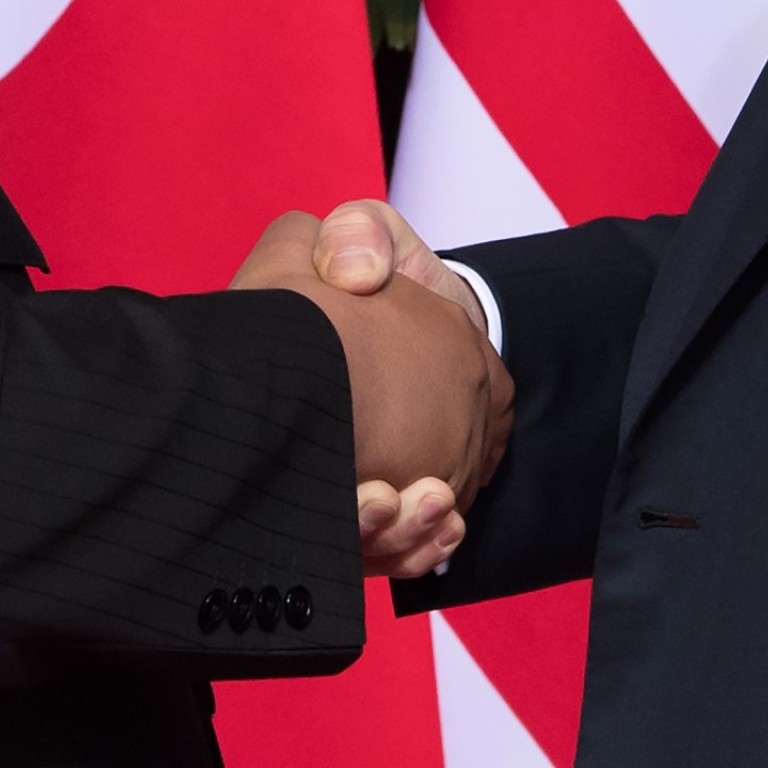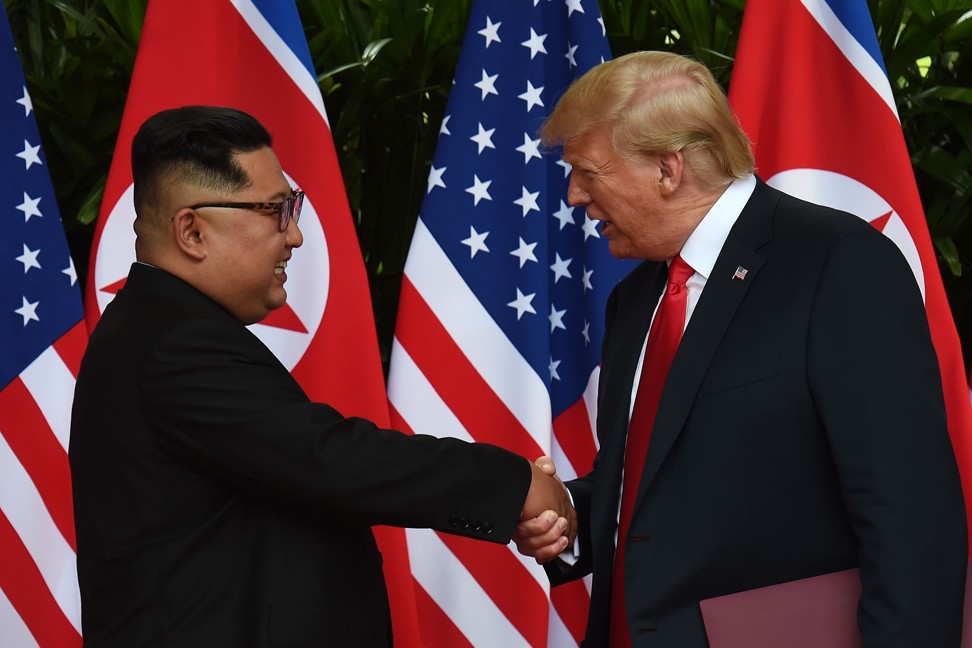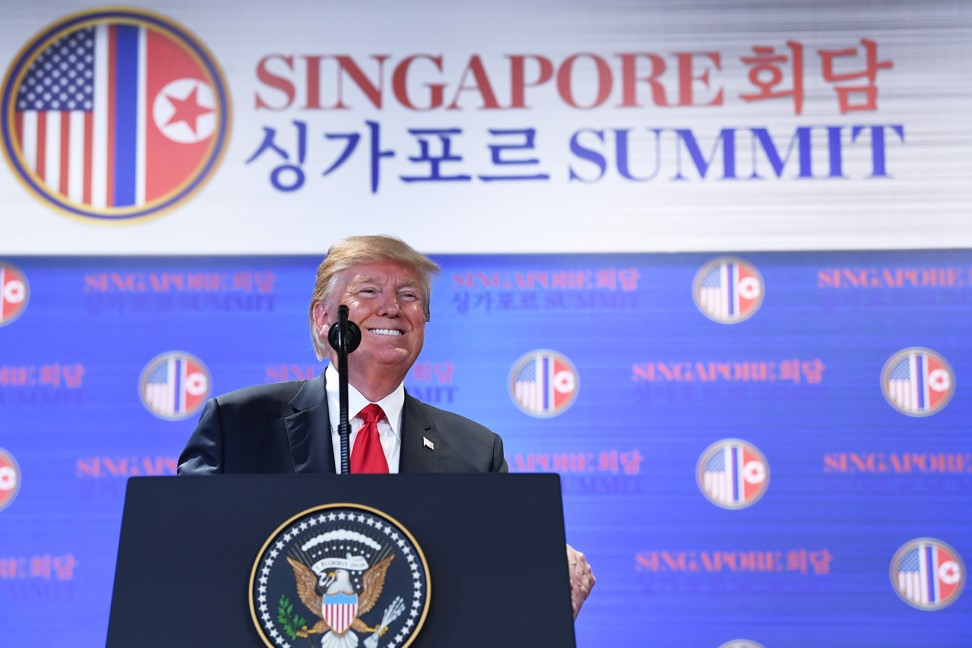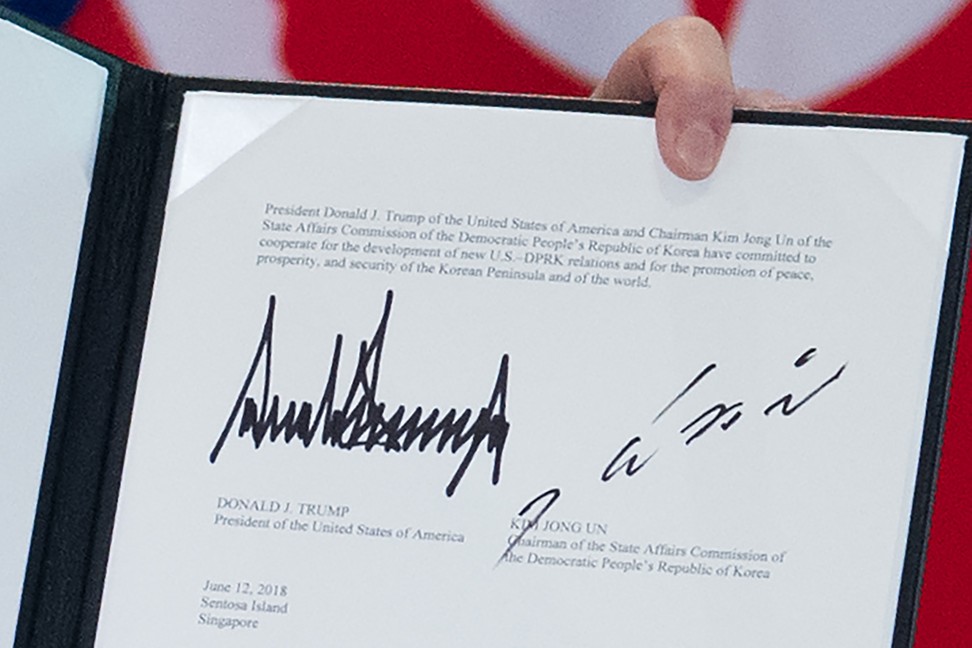
Promises must be kept as Trump and Kim agree on new era for old enemies
Pledges by the United States and North Korea to work towards a ‘stable and lasting peace’ have raised much optimism, but it could be a decade or more before the peninsula is determined to be nuclear-free
Kim Jong-un and Donald Trump have said that the agreement they signed in Singapore yesterday will lead to a new era in relations for their countries.
Their firm handshake and broad smiles on meeting with a backdrop of North Korean and American flags was certainly historic; not before had the leaders of the enemy nations met and a year ago, amid threats and insults, it was unimaginable.
But an extraordinary series of events culminated in the two men and their officials holding talks on the resort island of Sentosa and they have clinched what they claim is the basis for a new beginning. It is to be fervently hoped that they and their countries remain true to what they have signed and work tirelessly towards its implementation.

Trump spoke of the deal as being “very comprehensive”, but it is vague and lacking in detail, requiring rounds of future negotiations to flesh out. Included in the declaration were pledges for new relations between Pyongyang and Washington, a “stable and lasting peace” between the two Koreas and most challenging of all, a commitment by North Korea to work towards “the complete denuclearisation of the Korean peninsula”.
These are not matters that can be dealt with by the stroke of a pen on a document. In the case of the latter, it could be a decade or more before the peninsula can be determined to be nuclear-free.
China and the region certainly want what has been agreed to come to pass. The Korean war ended in 1953 not with a formal treaty, but a ceasefire that technically means North Korea is still at war with South Korea and its ally, the United States.
Hundreds of thousands of soldiers remain on alert, a situation exacerbated in recent years with Kim stepping up a programme of development and testing of nuclear weapons and missiles, and the taking of office of the unpredictable and often abrasive Trump. Any effort to bring a permanent end to the tension and instability has to be welcomed.
Outstanding issues
For that to happen, though, both leaders have to be genuinely committed to such a process. The international economic and diplomatic sanctions that have been imposed against the North for its weapons proliferation, ramped up under the American president, would appear to have driven Kim to seek a deal.
He has also gained legitimacy and status by being able to stand as an equal beside the US leader. Trump has domestic concerns to worry about, upcoming midterm congressional elections among them, but image and reputation also play a part. For the deal to succeed and be implemented, self-interest has to be set aside for the greater good of their nations and the world.

For all the drama and excitement of the on-off-on-again summit and the global attention it brought the leaders, its organisation was the easy part. More difficult will be brokering a peace deal, outstanding issues such as locating and repatriating the remains of American soldiers killed during the war having to be resolved.
But the most challenging of all will be denuclearising the peninsula, the North Korean and American sides having different definitions and expectations. The North will not easily give up a programme it took so long to develop at such great financial and human cost and its wish for security guarantees for now only includes the ending of war games between the US and South Korea, not the withdrawal from the South of American troops.
New beginning
China contributed much to helping bring the summit to fruition, a point acknowledged by Trump in thanking President Xi Jinping. The most obvious sign of Beijing’s involvement was when Kim arrived in Singapore aboard an Air China Boeing 747.
But the North Korean leader’s two trips to China for talks with Xi and other officials, and regular updates by diplomats in the weeks leading up to the meeting were crucial to ensuring it took place. Beijing will also have a major role should treaties be signed, no other country being as well placed to ensure verification and implementation and act as a guarantor.
There is every reason for Chinese involvement and continued participation; China, as North Korea’s neighbour and closest ally, wants and needs a stable and peaceful Korean peninsula.
Beijing has long been calling for direct talks between Pyongyang and Washington. It was the broker of the six-party talks process, which began in August 2003 and made substantial progress in laying out the terms for denuclearisation of the Korean peninsula during the fourth round in 2005.

From then, though, the details proved elusive and the process foundered in April 2009 with the North’s withdrawal after the UN imposed sanctions for its test-firing of a rocket. Efforts to resume the talks were made from time to time, but went nowhere due to the steadfast demands of Pyongyang and Washington. These are good reasons to be cautious about yesterday’s promises.
But there are also good reasons for optimism. The atmosphere at the Singapore talks was positive, Kim and Trump having shed their animosity. They seem to genuinely seek a new beginning for ties and they have to do their utmost to ensure that process moves forward smoothly. The next step is negotiations to attain goals much desired by the region: a formal end to the war; a nuclear-free Korean peninsula; the opening up of the North Korean economy; and the country’s normalisation of relations with the world.

